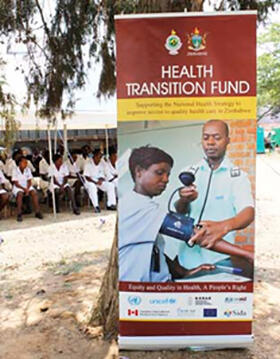
The Health Transition Fund (HTF) was announced in 2011 to revitalise Zimbabwe’s healthcare system in order to tackle the country’s high maternal and neonatal death rates and is funded by UNICEF and other international donors. LSTM was successful in winning the contract to evaluate the success of the programme, in a study that will last until 2015. The contract will help LSTM’s Maternal and Newborn Health Unit (MNHU) build on its relationship with the health system in Zimbabwe, which has already been established in programmes such as Making it Happen.
The economic challenges that Zimbabwe have faced over the past decade have made it particularly difficult for women and children, to access life saving health care. According to the Ministry of Health and Child Welfare in Zimbabwe one in three children are stunted, an estimated 100 children are dying every day due to easily preventable diseases, while at least eight women die every day to pregnancy related complications. The HTF aims to eliminate user fees for women and children and ultimately save more than 30,000 lives among children under five and pregnant women.
The MNHU, headed by Professor Nynke van den Broek, are conducting an independent evaluation covering the period from January 2012 to December 2015 during which the HTF was implemented within the context of the Zimbabwe National Health Strategy (2009-2013).
The thematic areas that are being addressed by the evaluation include: maternal, child, newborn and nutrition; medical products, vaccines and technologies (medicines and commodities); human resource for health (health worker management, training and retention scheme); health policy, planning and finance (Health Service Fund Scheme and Research).
